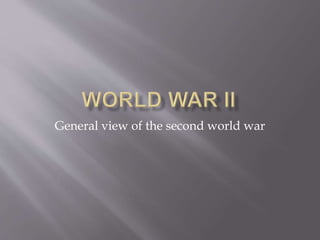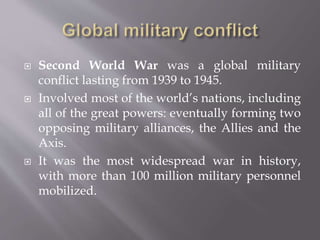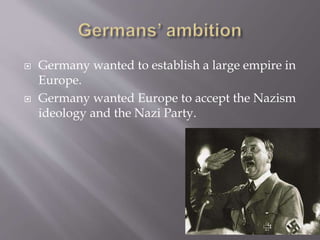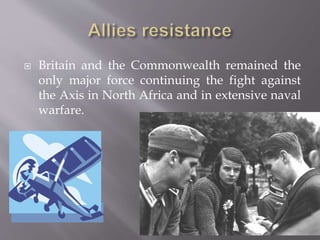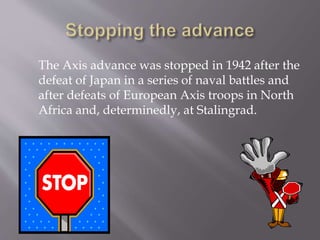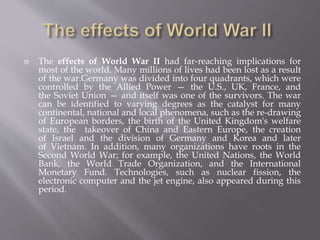The Second World War was a global military conflict from 1939 to 1945 that involved most of the world's nations forming into two alliances, the Allies and Axis powers. It was the largest war in history with over 100 million military personnel. Germany invaded Poland in 1939 to start the war and sought to establish a large empire in Europe and spread Nazism ideology. The Axis advance was stopped in 1942 after defeats in North Africa and at Stalingrad, and the war in Europe ended in 1945 with the Allies capturing Berlin and Germany surrendering. The war had widespread implications and effects including the division of Germany, creation of new countries and organizations, and emergence of the US and Soviet Union as superpowers dominating the postwar world.
